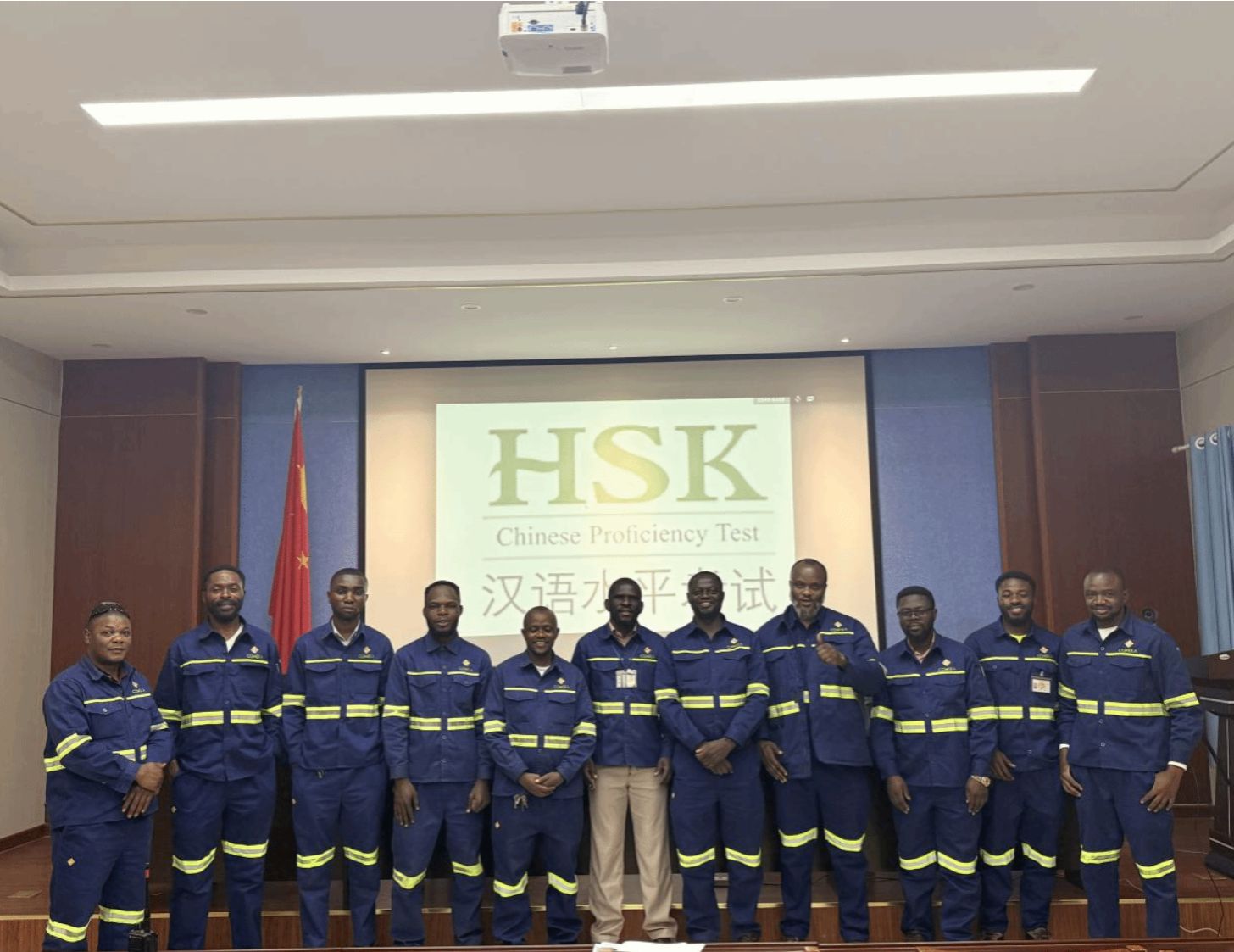Recently, the first phase of the Chinese Proficiency Test (HSK) specialized training in 2025, jointly organized by Northern Mining Co., Ltd. and our university under the "Banmo Institute (Northern Mining) and Lamika Chinese Workshop" in the Democratic Republic of Congo, was successfully completed. This two-week immersive training, aimed at "targeted preparation and efficient skill enhancement," adopted a combination of online live instruction, simulated pre-test assessments, and bilingual teaching in Chinese and English with French support, establishing a systematic framework for local employees to learn Chinese and prepare for the HSK exam.
The training was meticulously designed based on the HSK Levels 1-2 syllabus, covering core test components such as pinyin, Chinese character writing, vocabulary building, grammar rules, and situational dialogues. Two instructors with extensive experience in international Chinese language teaching employed a "knowledge review + exercise analysis + skill breakdown" methodology, transforming complex concepts into modular learning content. Through mock tests and one-on-one error analysis, trainees were guided to develop a structured approach encompassing "key point identification, strategy optimization, and time management."
Patrick, a local employee who participated in the training, shared in the closing ceremony: "The instructors explained the exam essentials very clearly—now I feel much more confident about passing the HSK!"
As a key initiative in our university’s commitment to advancing overseas vocational education in the DRC, the Banmo Institute and Lamika Chinese Workshop have established a comprehensive educational model integrating "Chinese language training, skill development, and cultural adaptation." Beyond this HSK-focused program, the university routinely dispatches interdisciplinary teaching teams proficient in both "Chinese + specialized skills" to conduct training in the DRC. By leveraging a dual-track online and offline teaching approach tailored to the cultural contexts of both China and the DRC, the program has cultivated a cohort of localized talent for Northern Mining who are both "Chinese-proficient" and "technically skilled."



